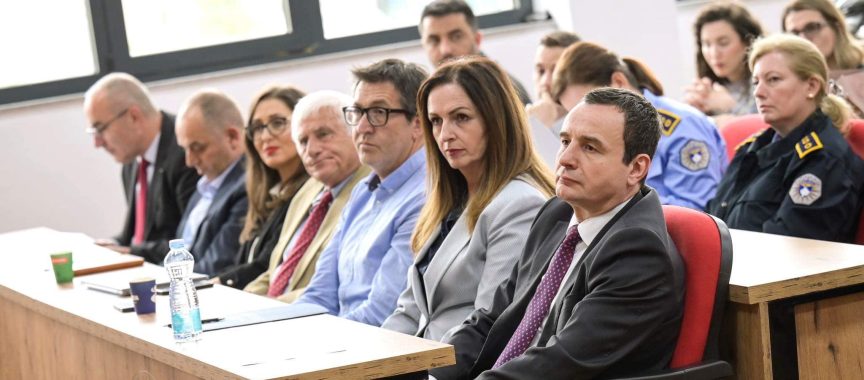The Prime Minister of Kosova, Albin Kurti and the Minister of Education, Science, Technology and Innovation, Arbërie Nagavci, participated in the opening of the international conference “Mental health in schools: Evidence-based interventions”, which was organized by the Psychology Department of the Faculty of Philosophy of the University of Prishtina.
On this occasion, Prime Minister Kurti emphasized that the Government of Kosova strongly believes in the human capital in Kosova, while he spoke about the work that has been done for the welfare of children.
Prime Minister Kurti, in particular, emphasized the importance of early childhood development in terms of mental health, while he said that the role of educational institutions is irreplaceable in this regard.
Meanwhile, in her speech, Minister Nagavci said that family and school are the two fundamental pillars in the life of every child. Likewise, the minister emphasized that school psychologists play a major role in dealing with aspects of mental health in students. “In the Education Grant at the country level, the Government has approved 520 positions for school psychologists, where less than 1/3 of them have been employed so far”.
Speaking about the work and activities of the Ministry in this regard, Minister Nagavci, among other things, mentioned the cooperation with the Department of Psychology of the UP, as well as the work of the National Forum for friendly schools “We grow together” founded a year ago.
Prime Minister Kurti and Minister Nagavci wished that this important conference would yield valuable recommendations for all shareholders.
Over two days, this year’s annual psychology conference will aim to provide a discussion forum to discuss current trends, new research and the future in relation to mental health, school and education.
In order to design early intervention programs for the promotion, prevention and support of mental health in schools, through this event local, regional and international experts, will contribute, share their studies and we will discuss the most appropriate intervention modes for the respective contexts.
Last modified: May 26, 2023


